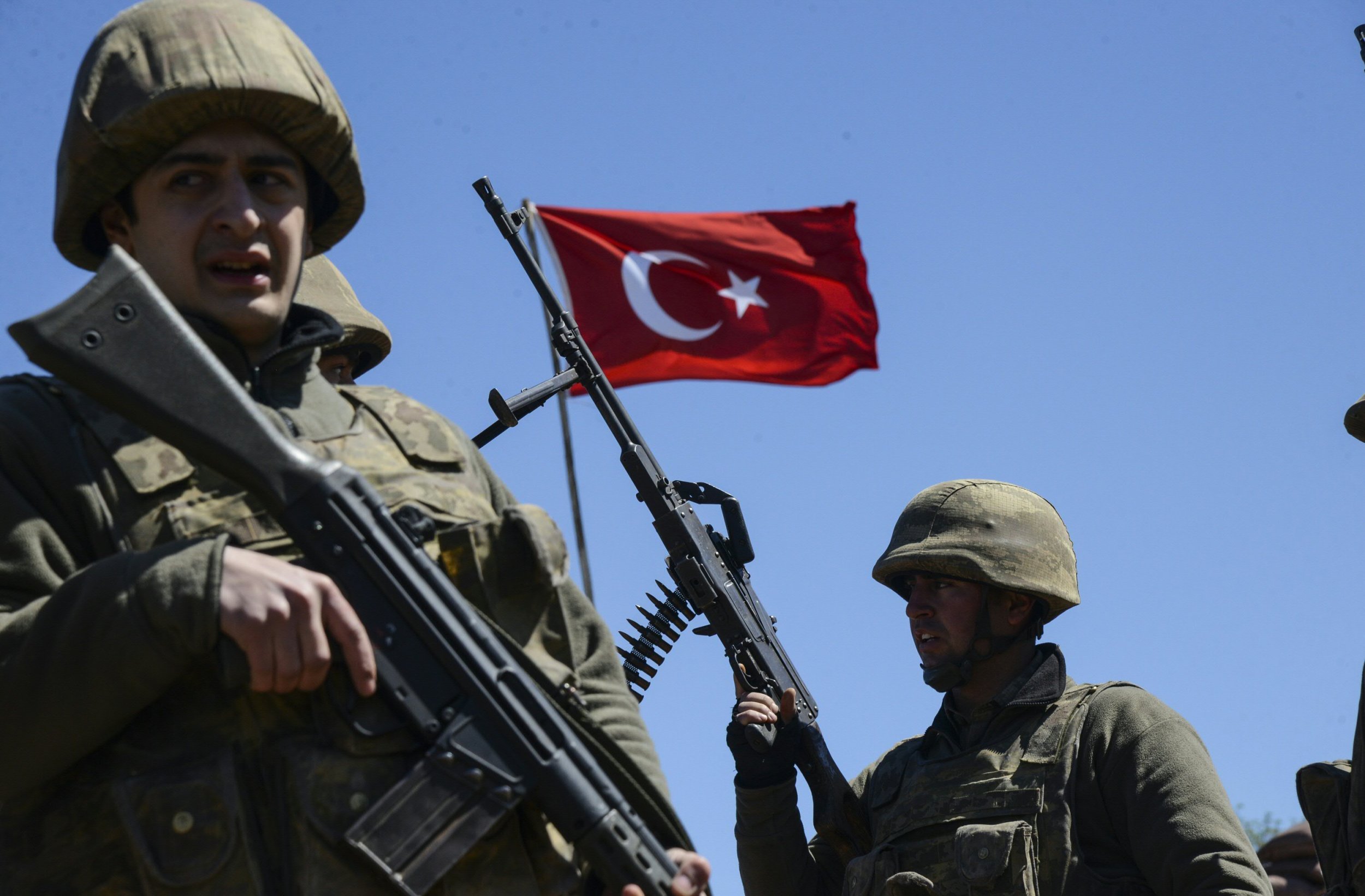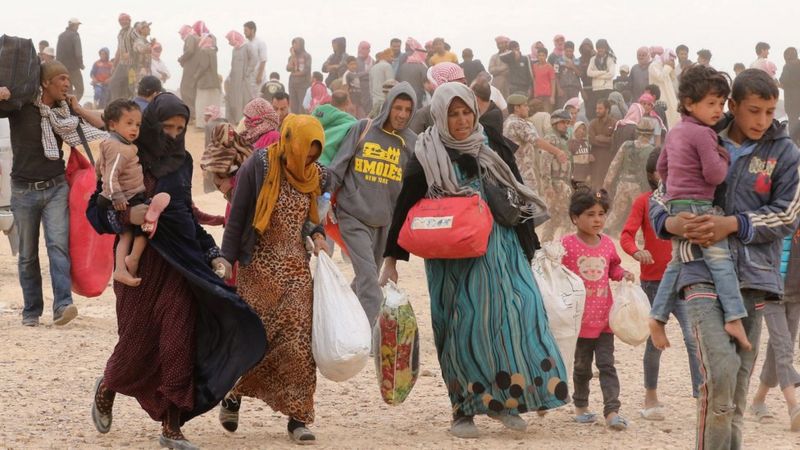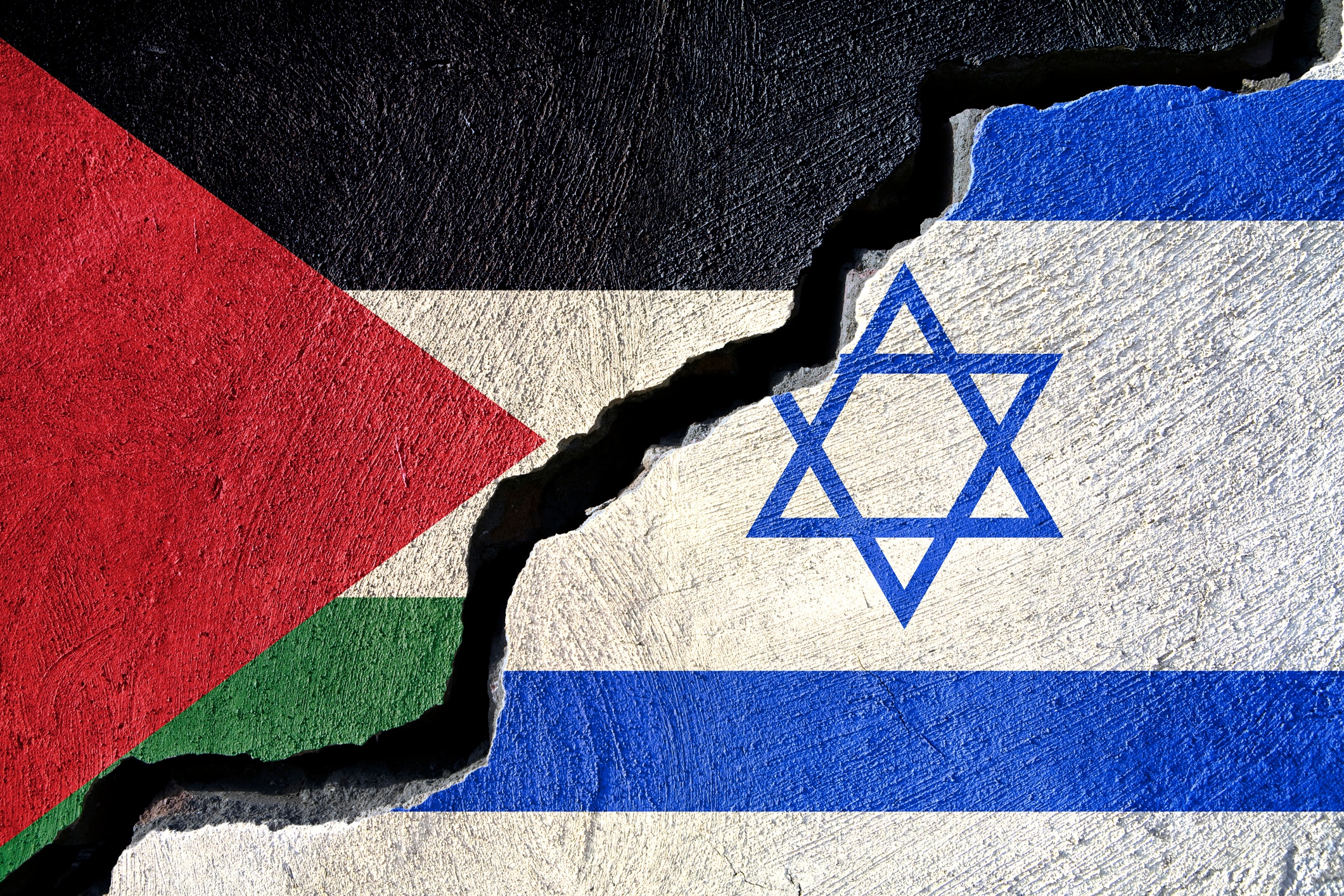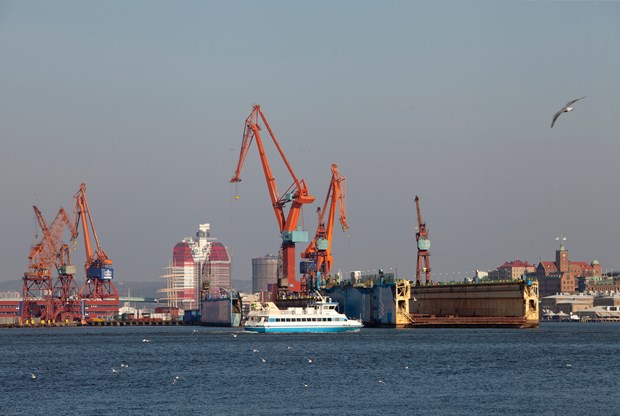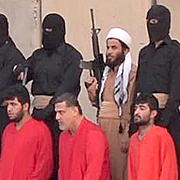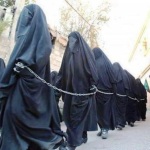While there are other nations in Europe which have a Muslim history, such as the former Yugoslav countries of Kosovo, Serbia or Bosnia and Herzegovina, none can match the sheer size of Turkey . NATO depends on Turkey not just for its military, but also for its strategic importance at the eastern end of the Mediterranean and proximity to Russia's underbelly...and Ukraine.
It's location offers a perfect tactical point to monitor all Russian ship movement---military and civilian---in and out of the Black Sea through the Bosporus Strait. It provides prime real estate for listening stations and an excellent staging point for missiles aimed at key Russian military sites such as the vital Sevastopol naval base, as well as the oil and gas fields in the Crimea. Obviously, Moscow is easily within reach of land based missiles, not to mention "boomer" ICBM submarines lurking in the Black Sea and nearby Mediterranean.
As an aside, Turkey's strategic position was put to the test back in 1962 when the United States secretly placed not just listening stations in Turkey, but also nuclear "Jupiter" missiles batteries capable of hitting Moscow within minutes, not to mention sites within the Warsaw Pact, which included the countries of Ukraine, Hungary and Romania.
The Soviet Union, led by Soviet Premier Nikita Khrushchev, responded in-kind by putting listening stations and their own "R-12" intermediate range thermonuclear missiles in Cuba, resulting in a standoff known as the "Cuban Missile Crisis", which brought the world as close to total nuclear annihilation as it has ever come (and hopefully ever will).
President John Kennedy and Premier Khrushchev were able to work out a deal whereby Soviet missiles would be withdrawn from Cuba provided U.S. missiles were removed from Turkey (which the U.S. quietly did several weeks later so as not to alarm the America public or look as if we were backing down to our allies), which brings us back to Turkey again.During the 1960's and since, Turkey has provided the manpower to fuel the burgeoning economic success of post-WWII Europe, especially Germany which had become Europe's economic engine. The result was a massive influx of mostly Muslim Turks into Germany and elsewhere in Europe (about three million ethnic Turks now live in Germany along with roughly 3 million throughout the rest of Europe).
However, all isn't well between Turkey and its European/NATO allies. The rise of a radicalized Islam in neighboring countries has resulted in pressure on the traditionally secular Turkish Government, currently led by President Recep Tayyap Erdogan and his conservative/right wing "Justice and Development Party" to become more assertively Islamic. It should be pointed out that Turkey's Constitution specifically prohibits political parties which promote Islam or Sharia law.
The party, which utilizes the initials "AK" or "AKP", considers itself to be pro-liberal economically and conservative democrat domestically, following the ideals originally set forth of the founder of modern Turkey, Mustafa Kemal Ataturk, in what's termed as "Kemalist Reforms". However, others have described Turkey as being democratically Islamist, which has been strongly denied by President Erdogan.
Some claim that Turkey is following a "neo-Ottomanist" foreign policy designed to make itself the dominant power in the Near East (which would obviously puts it at odds with Saudi Arabia and Iran). Indeed, a growing number of groups within Turkey are wanting to see the country slide further to the right and become more openly Islamic, if not like theocratic Iran, than at least like a democratic version of Saudi Arabia or Kuwait.
This leaves Turkey's government essentially walking a tightrope, which occasionally has spilled over in Turkey's relationship with Europe and the U.S. led NATO's support of Israel versus Turkey's obligation to side with the Palestinians and Hamas, which Erdogan does not consider to be terrorists. The last thing President Erdogan wants is to face a situation like that of President Assad and Syria.Turkey has promoted the "open border" policy of Europe, which has become extremely unpopular among Europeans due to the rise in crime and attacks on non-Muslim women for not being "modestly dressed" and demands for more conformity with Sharia law. Some have even called for an end to Oktoberfest due to the Muslim prohibition on alcohol! The number of legal and illegal influx of so-called "migrants" has resulted in approximately 22.8 million migrants coming to Europe with more arriving almost daily.
Most of these arrivals are single young males of military age. Entire areas of European communities are now defacto Muslim enclaves, operating under their own laws (mainly Sharia) with their own representatives, courts, taxes, and police despite national laws to the contrary. As many don't work, there's been a tremendous strain placed on the economic safety net on the host nations, resulting in higher taxes and lower living standards for the native populations. There's even been calls for the locals to leave since their country is no longer theirs. It now belongs to the migrants!
This influx has also impacted national foreign policies too. Many of the European countries have supported Israel since its inception in 1948. However, the large Muslim populations now make that position difficult to maintain in the face of massive protests, threats of riots and boycotts to force a withdrawal of support for Israel and more aid for Hamas and the people of Gaza.
In recent years, President Erdogan has repeatedly "threatened" to flood Europe (his NATO allies) with "millions" of refugees from Syria. Turkey had previously granted temporary asylum and medical aid to the Syrian refugees to help slow down the influx into Europe via Greece contingent on the EU creating a "safe zone" in Syria for the refugees, which haven't happen. Cyprus has joined with Turkey in the call for "safe zones". Meanwhile, Turkey has created relatively safe "buffer zones" in their own in Syria.
As an aside, Turkey had been used as staging point for these massive columns of migrants moving into Europe. In addition, Erdogan has also threatened to order Turkish nationals home from Europe, which could have a critical impact of Europe's economy due to the shortage of workers and overall decline in population. Europe's population has declined due to fewer women having children, smaller families, and its aging population, not to mention the impact of COVID-19.Meanwhile, Turkey has forced Kurds out of refugee settlements in its east border. The Kurds had been under threat of genocide from ISIS, with many of their men having been murdered (mostly beheaded, hanged, or simply shot) while women and children were sold into slavery (girls as young as 7 or 8 were sold as "sex slaves" along with young women and others). Turkey and the Kurds have had a long history of conflict, which has often included Syria, Iran and Iraq, over the issue of Kurdish homeland.
Turkey has also reiterated its pro-Palestinian stance as well as Erdogan has repeatedly demanded that Israel stop its military operations in Gaza. Israel responded to the brutal surprise attack by Hamas which resulted in the initial murder of 1400 men, women, and children (with many of the children being beheaded) with equal ferocity.
Hamas's attack came by land, air, and sea, and was supported by missile and drone attacks. The air support came by way of hang gliders. In addition, Hamas also attempted to torch residences and businesses. Israel's Benjamin Netanyahu has sworn total destruction of the terrorist organization and a "substantial reduction of Gaza". The U.S. has sent two aircraft carrier task groups into the region, along with extra missile batteries while the UK has provided an aircraft carrier strike group.
Meanwhile, pro-Palestinian Hezbollah, designated terrorist group located in Southern Lebanon, has launched limited missile attacks into Northern Israel along the Golan Heights and promised to invade if Israel didn't halt its military actions in Gaza immediately. Hezbollah is substantially larger than Hamas. Both are backed by Iran.
As if that weren't bad enough, ISIS and Al-Qaeda factions in Syria have fired missiles into Israel while former guerrilla fighters or "Jihadist" from Afghanistan and Iraq have begun to gather along Jordan's border with Israel. Jordan, meanwhile, has called up its military to prevent any attempts by Jihadists to cross its borders into Israel.President Erdogan, while accusing Israel of deliberate attacks against the people of Gaza, has spoken with other regional leaders to ask that they apply additional pressure on Israel to stop its military operations. Erdogan has called Israel's attacks "genocide", which is a slight exaggeration, was not unexpected, and yet Hamas did intentionally plan and attack Israeli civilians knowing full well Israel's response.
Hamas knowingly placed weapons, ammo, communications and observation sites, missile batteries, artillery and tunnels in or near homes, schools, and hospitals, hoping Israel would hit them so they could accuse the Israelis of inhumanity and war crimes. Sorry, but you don't use people as shields. That's cowardice and criminal. If anyone is guilty of attempted genocide, it must also include Hamas.
In the interim, Turkey has spoken out against American and British support of Israel as large pro-Gaza protests are happening not only in Turkey and Europe, but also in Asia, Canada and even the United States. It appears Israel no longer has the worldwide support it once did, despite murderous attacks by those who've sworn to wipeout Israel and every single Israeli (it's even in their constitution).
So what happens next? The U.S. has obligatory urged Israel not to invade Gaza, but knows it will happen regardless. Might Turkey feel obliged to intervene on behalf of Gaza? Would this affect the solidarity of Turkey and the other members of NATO, especially the U.S. and UK? If that were to happen, how would it affect NATO's presence in Turkey and what about the ongoing war in Ukraine? Turkey is a vital staging point for weapons and supplies.
Might NATO sacrifice Turkey for Ukraine? If so, Turkey could open its borders to allow a defacto invasion of Europe by migrants, ironically following the same route of the invading Ottomans in 1683, or withdraw its nationals from Europe's factories. Such a move could prove to be an economic catastrophe. Would support of Gaza also imply support of a internationally recognized terrorist group?Would Turkey attempt to convene a coalition against Israel? There's no question that Turkey would like to recreate the power and prestige of the Ottoman Empire at the expense of Iran's growing regional influence. As a "free agent" Turkey would look extremely appealing to a expanding China too. Also, an expanded war involving Turkey would put a strain on America's military presence which it may not be able to deal with.
A recent Pentagon study revealed that the U.S. military was not up to fighting on multiple fronts. In fact, of all the armed force branches, only the U.S. Marines were 100% combat ready (hooyah devil dogs!). Thus an expanded conflict in the Middle East could give China the opening it needs to invade Taiwan, especially if North Korea's Kim Jong Un could be persuaded to get frisky with the Seoul.
Meanwhile, Israel might just start feeling a cold wind coming its way as Europe finds itself unable to provide previous levels of support thanks to the large Muslim influx which could cause possible political instability at home. That pretty much leaves the U.S. and Israel, and with the U.S. having its own increasingly serious internal problems, it's not a wholly reliable ally.
Perhaps the solution (if there is one) is to reject Ukraine's application to join NATO while strengthening economic ties. Israel and the Palestinians need to revisit the idea of a "two state" solution. After all, the land wasn't exactly vacant when Israel moved in---neither 3000 years ago or in 1948. People may have been able to get away with it back then but not nowadays.Nevertheless, Israel is not going anywhere, even if it means turning all that sand into glass. Everyone needs to formally accept Israel's existence, put on their big boy "sirwal" and get over it (you may substitute for a "wizrah"). No one is forcing them to trade or anything else with Israel. They just have to want peace. And while we're at it, isn't time the Kurds were finally given a homeland too?
If you enjoyed the article, please consider passing it along to others and don't forget to subscribe. It's free! Lastly please be sure to "like" us on whatever platform you use to read anotheropinionblog.com. It helps with the algorithms and keeps our articles in circulation. Thank you!
Turkey's Erdogan calls on Israel to stop its attacks on Gaza 'amounting to genocide'
Turkey moves ahead with its threats to send refugees to EU
Turkish president threatens to send millions of Syrian refugees to EU
Changing continent: The EU's population is declining, new figures reveal
Depopulation trends in Europe: what do we know about it?
The Jupiter Missiles and the Endgame of the Cuban Missile Crisis: A Matter of "Great Secrecy"
Justice and Development Party (Turkey)


